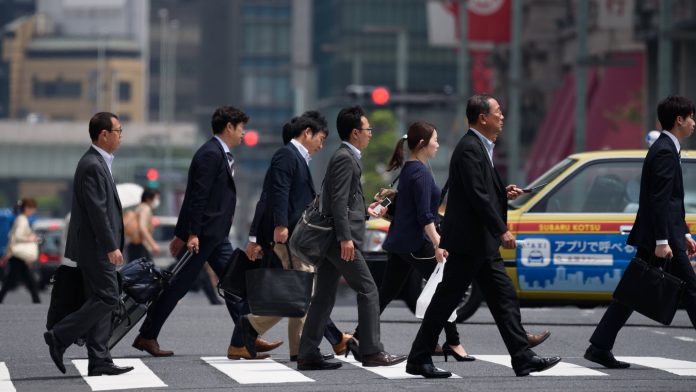Japan’s workforce has been facing a severe manpower shortage for the past decade. Like many other developed nations, a large portion of the younger workers are foregoing relationships and families to concentrate of their careers. As a result, the next generation of workers are far fewer in number. This is exasperated by Japan’s culture of work that puts great emphasis on dedication to one’s job.
Driven by this shortage of workers, Japan is offering more job opportunities in 14 work categories to foreign workers. Thai workers in particular who have previously undergone occupational training in Japan are among the first in line, said the Thai Ministry of Labour.
The Thai ministry has signed a memorandum of cooperation (MoC) with four Japanese agencies – the Justice Ministry, Foreign Ministry, Public Health, Labour and Welfare ministry, and the National Police Office – on cooperation in supplying skilled workers to Japan, said permanent secretary for labour Suthi Sukosol.
In the first phase of the agreement, Japan will welcome skilled workers from Thailand to work in Japan for up to five years in four out of fourteen work categories; that being nursing, construction, building cleaning, and agriculture, said Sukosol. Other areas of work in which Japan needs to import skilled workers from overseas include machinery parts and industrial equipment production, the machine industry, electronics, information technology, ship building, car repair and maintenance, aviation, hotels, fisheries and aquaculture, food and beverage production, and hospitality.
Department of Employment director-general Suchart Pornchaiwisetkul said that Japan wishes Thailand to supply skilled workers in said categories as soon as the COVID-19 pandemic calms down.
The main driver for Japan’s demand for skilled foreign workers is the need to boost the nation’s economic growth. Saichon Akanitvong, Minister Counsellor, Office of Labour Affairs, at the Royal Thai Embassy in Tokyo, said about 60,000 to 70,000 skilled workers in these jobs will be exported to Japan each year over the next five years.
Despite a shortage of workers, foreign workers undergoing training in the country were required to leave once their training was complete. However, many Japanese companies wished to retain these foreign workers whom they trained, said Saichon.
Office of Overseas Employment Administration director Kattiya Pandech said this was a good opportunity for skilled Thais, especially for more than 5,000 workers who have completed training in Japan before as they will be exempt from mandatory Japanese language and work skill tests if they want to go back to Japan to pursue a job in the same work area they had been trained in. Workers who have not passed such training will still be required to pass a Japanese language and work skill test first, he said.























